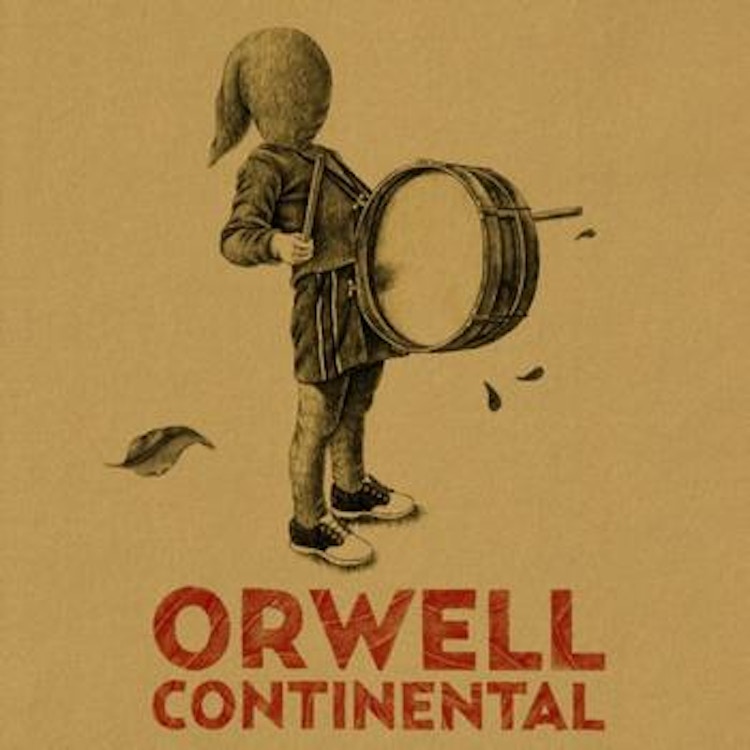"Continental"

Let’s get this out of the way immediately: French outfit Orwell do like their soft pop. Continental, their third album, follows the well-worn tracks of Brian Wilson, Harry Nilsson and lost genius Bergen White, plus the modern chamber pop sounds of fellow Gallic outfits Air, Tahiti 80 and Phoenix. This means lots – and I mean lots - of synth and electro sounds, soldered to jaunty acoustic guitars and percussion. Everything and the kitchen sink.
Apparently this record was inspired by Gabriel Garcia Marquez’s One Hundred Years of Solitude (it’s about a girl, right? to misquote High Fidelity‘s Rob Gordon) which, apart from being an extremely twattish explanation of album inspiration, means that it’s got a lot to live up to. Sadly, it fails to both match the musical and literary influences.
Orwell is the work of multi-instrumentalist Jerome Didelot, someone who’s clearly a fan of packing as many ideas as he can into one song – regardless of whether it works or not, and therein lies the problem with Continental. While being able to turn a hand to any instrument you can name is something I’m incredibly jealous of, there comes a time when someone has to tap you on the shoulder and whisper gently in your ear: “enough is enough”.
Things start off incredibly promisingly with title track ‘Continental’. It surges out of the blocks with an urgent, insistent groove worthy of Didelot’s Krautrock heroes Cluster and Neu!, and for five minutes thrills with its multi-lingual delights (lyrics are in English, German and French). It’s an utterly wonderful introduction, and left me thinking further treats were imminent. Orwell, though, commit the cardinal mixtape sin of coming in too high – once ‘Continental’ has passed, nothing else hits those giddy heights. Sure, we have some treats in the form of ‘Lonely Ride’, sounding like a forgotten song from The Virgin Suicides soundtrack, and the triumphant, harmonious ’On This Brightful Day’ to carry a bit of momentum forwards. There’s also ‘The Wife, the Battlefield’ which delights with maudlin baroque pop, and the downbeat ‘Follow Me, Boy’ - both reveal a possible future direction for Orwell in their depressive yet uplifting symphonic construction.
Things start to go wrong with the use of the stylophone on ‘Always’, proof that the, ahem, instrument should have remained firmly in the 1970s or on the shelves of some overpriced boutique store, to be purchased purely by people who need props to prove the existence of a sense of humour. What follows that is a procession of the twee (‘Anytime Is Now, the lacking in melody (‘Them’) or the just plain disappointing (‘Secret Movies’). There’s really not much in the second half of the record that is attention-grabbing, and that’s really what lets the record down. Didelot seems to keen to show off as many colours as he can, without paying attention to the heart of the song.
It’s unfortunate to report that Continental ends up a largely disappointing experience, and labours under the weight of its myriad ideas. While there are nuggets of great ideas present in half of the songs, Jerome Didelot and Orwell need to learn that sometimes, less is more.
Get the Best Fit take on the week in music direct to your inbox every Friday

Kendrick Lamar
GNX

Father John Misty
Mahashmashana

Kim Deal
Nobody Loves You More





